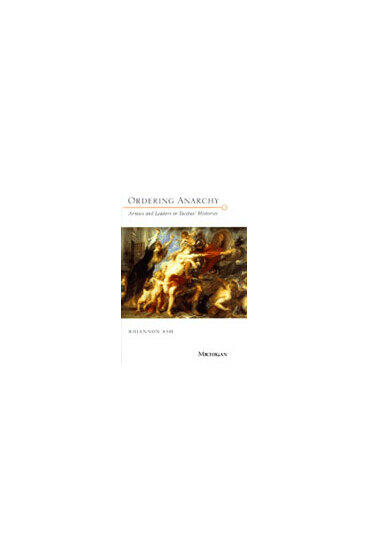Ordering Anarchy
Armies and Leaders in Tacitus' Histories
Description
Tacitus made his debut as a historian with the powerful Histories, a fundamentally important book for students of the literature and history of Rome in the early imperial period. Long regarded chiefly as a source of historical information about the civil war of 68-69 C.E., it has recently benefited from critical reevaluation. Scholars in the last few years have determined that the form of a work is as important as its contents. Therefore, a closer reading of "historical" works--like the Histories--has revealed the frequent use of suggestive juxtaposition of episodes, pointed allusion to previous writers, and other literary techniques traditionally not associated with "history."
The aim of Rhiannon Ash's new volume is chiefly to examine Tacitus' techniques as a literary artist in the Histories. Beginning with a close study of collective characterization in Caesar, Appian, and Cassius Dio, the author analyzes Tacitus' ground-breaking depiction of the armies in the Histories. Drawing on material from the Roman historiographical tradition and from Flavian epic, Ash explores how Tacitus evokes the ethnic identities of Rome's foreign enemies to characterize the armies of the civil war in a complex and distinctive way. Next, using different analytical techniques, she investigates Tacitus' portraits of Galba, Otho, Vitellius, and Vespasian, and of the Flavian general Antonius Primus, who plays a comparatively minor part in other accounts of the civil wars. Only the charismatic Primus possesses the necessary leadership skills to control the armies, but Tacitus shows us why there is no room for this talented general in the new Flavian regime after the war. In doing so, Tacitus raises disturbing questions about the victorious Vespasian's methods and reputation.
Rhiannon Ash is Lecturer, Department of Greek and Latin, University College London.
Rhiannon Ash is Lecturer, Department of Greek and Latin, University College London.
Reviews
"By going the extra mile with her subject, Ash has finally done Tacitus justice on many counts, and his skill in depicting and characterising the different armies and groups within the armies cannot be missed after reading Ordering Anarchy."
- Jason Davies, University College London
—Jason Davies, University College London, Bryn Mawr Classical Review, May 21, 2000
"Ash offers a readable, reliable (because he is well-informed about traditional and contemporary scholarship) study of events and literary presentation, appropriately acknowledging his debt to A. J. Woodman's Tacitus Reviewed. Subsequent students of Tacitus will acknowledge Ash, for he has placed the prime witness of events within both a sophisticated literary and an informed historical context."
- P. B. Harvey, Pennsylvania State University, University Park
—P. B. Harvey, Pennsylvania State University, University Park, Choice, March 2001
". . . a book that will be welcomed by serious scholars of Tacitus. Ash demonstrates the importance of investigating a work of ancient history, not merely for the apparent 'facts,' but also for the rhetorical context within which such facts are embedded. By scrutinizing episodes both within Tacitus' texts and relating them to similar episodes in the works of other historians, Ash demonstrates that 'the facts' are often components of venerable and firmly established historiographical stereotypes. She contributes to scholarship on the post-Neronian civil wars by clearly demonstrating how Tacitus both complied with and departed from the established historiographical tradition."
- Francesca Santoro L'Hoir, American Academy in Rome
—Francesca Santoro L'Hoir, American Academy in Rome, Classical World, Volume 95: No. 4 (2002)
"Ash has taken on the task of showing that this generally dismissive attitude towards the Histories has been unwarranted, and has done so successfully. Her aim is therefore to draw our attention to Tacitus' technique as a literary artist as manifested in the Histories, rather than to the objective truth about the events described. Her thesis is that by subtle artistry Tacitus attributes distinct and individual personalities to the civil war armies and their leaders. . . . A fine book that should make us look at the Histories with a fresh eye."
- Anthony A. Barrett, University of British Columbia
—Anthony A. Barrett, University of British Columbia, Phoenix

